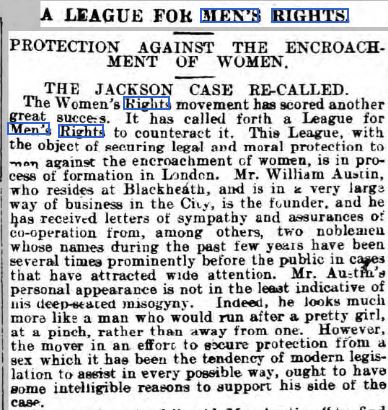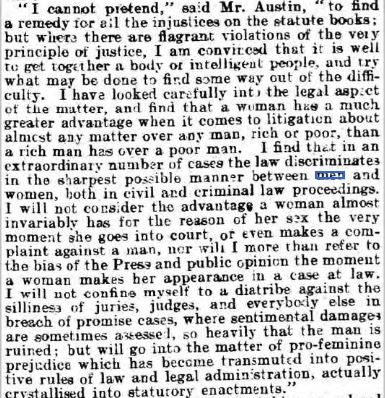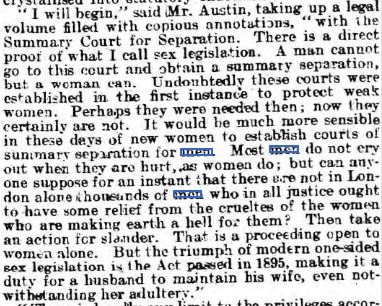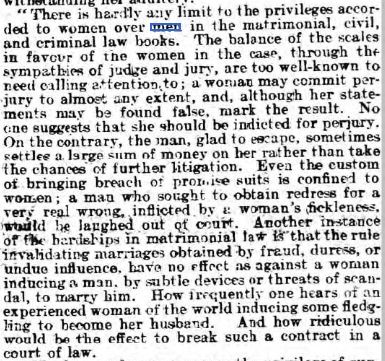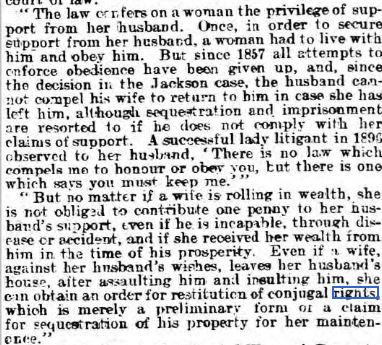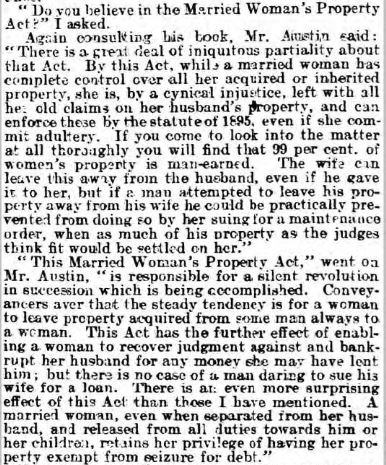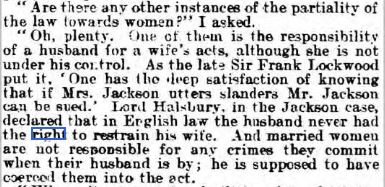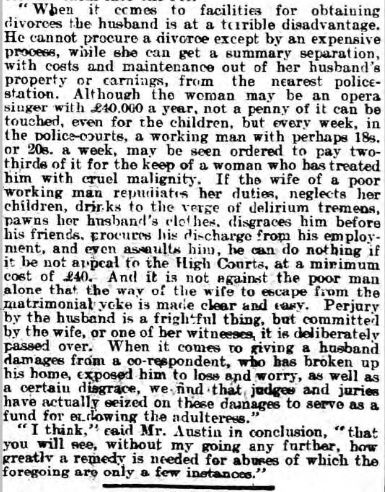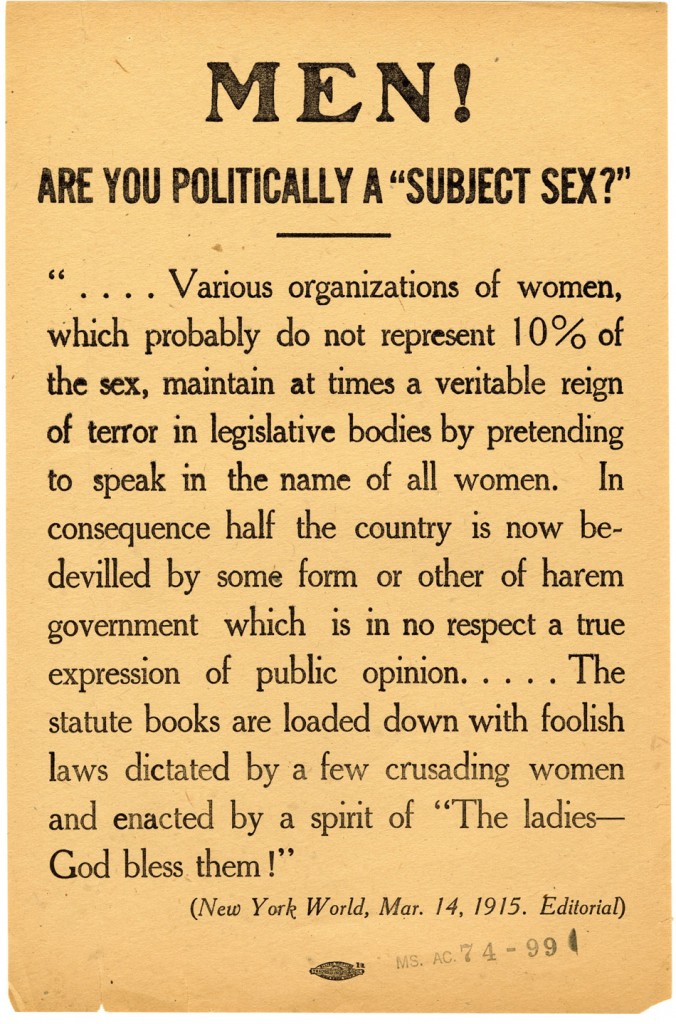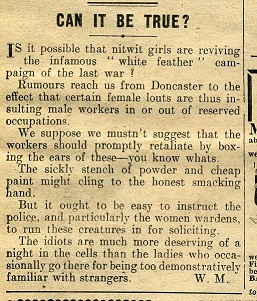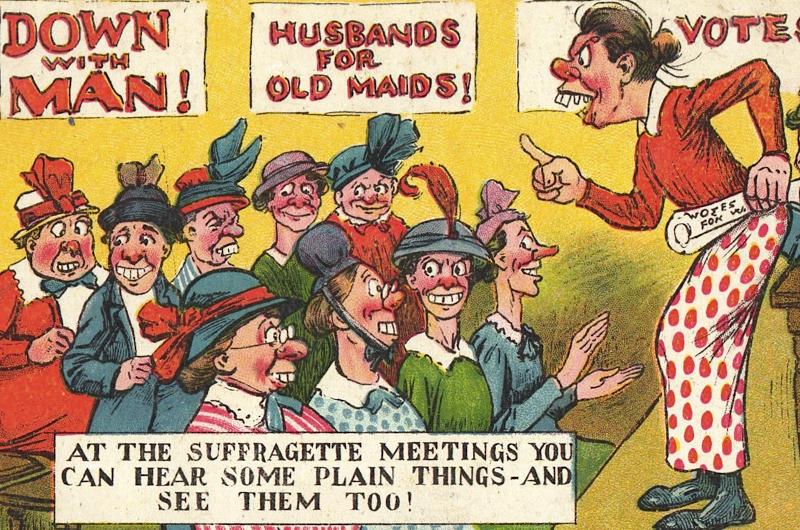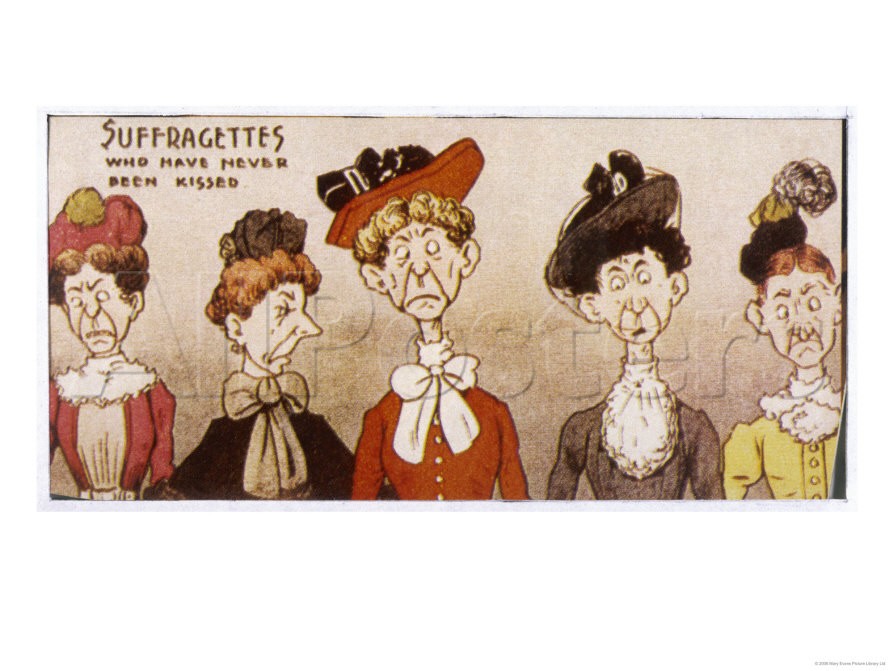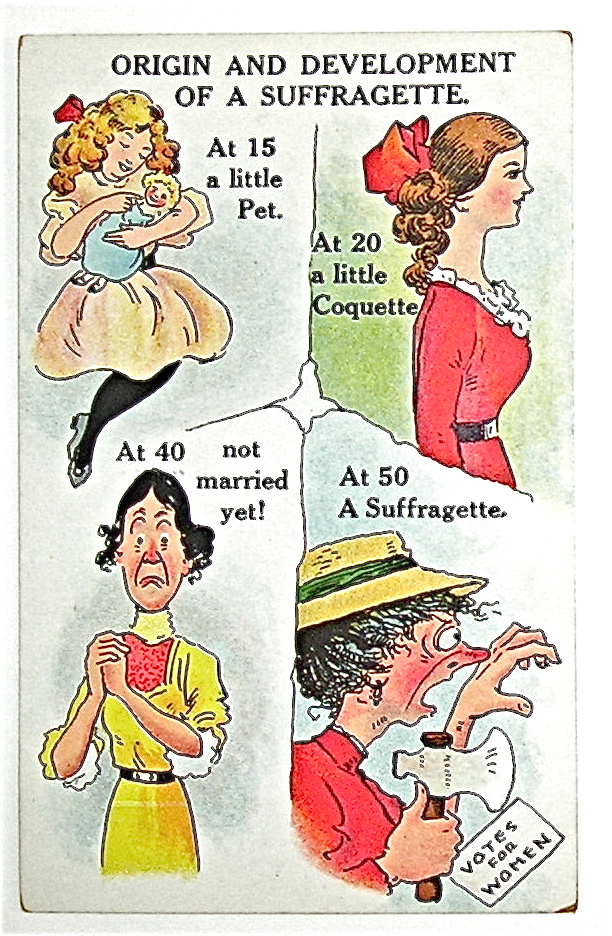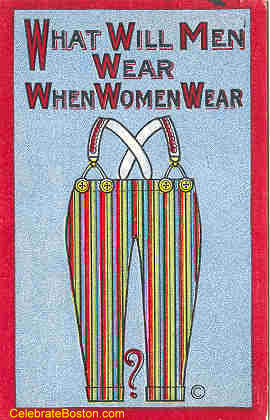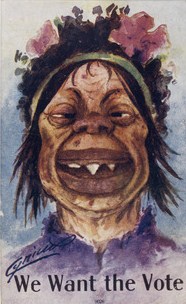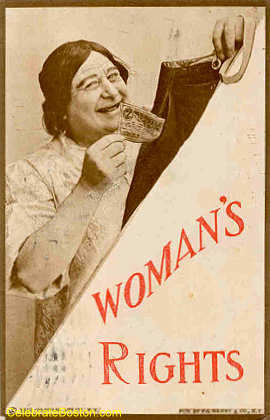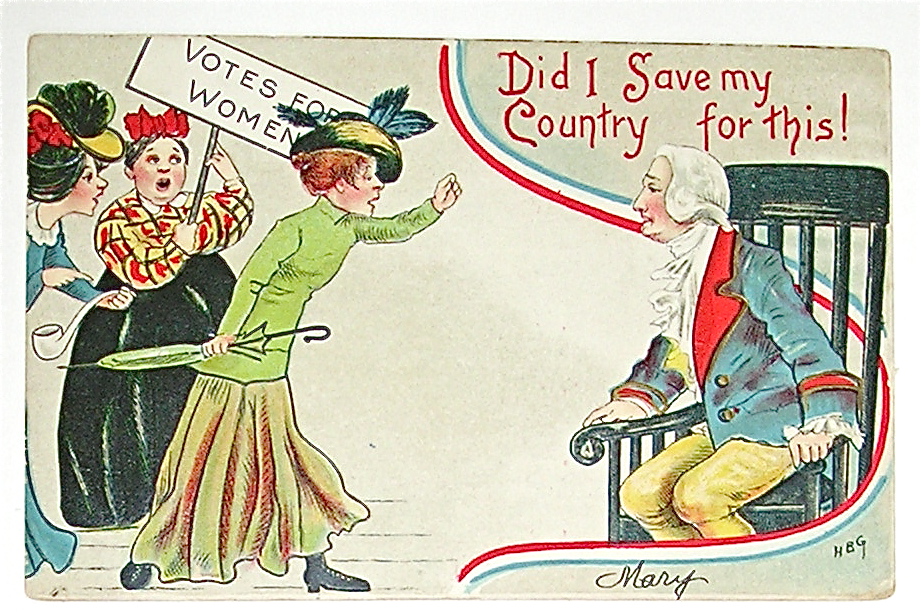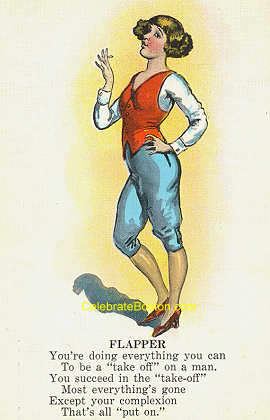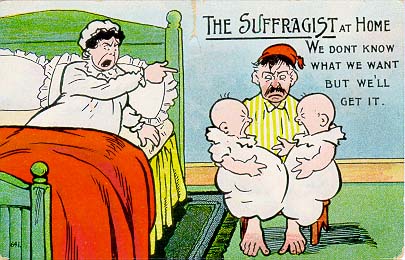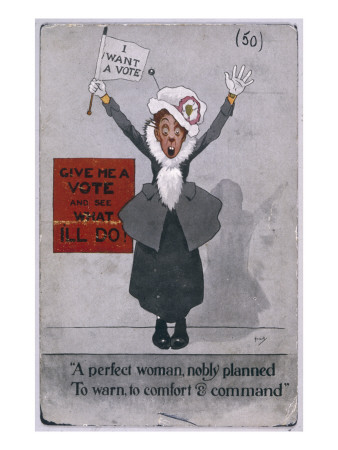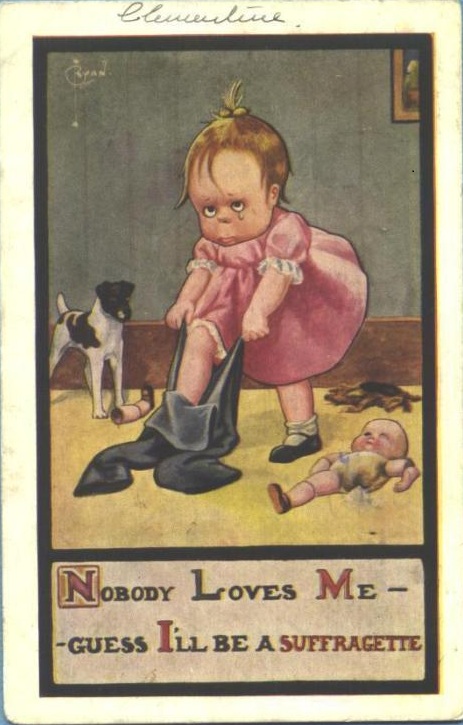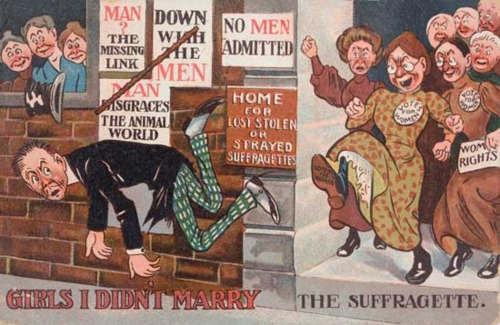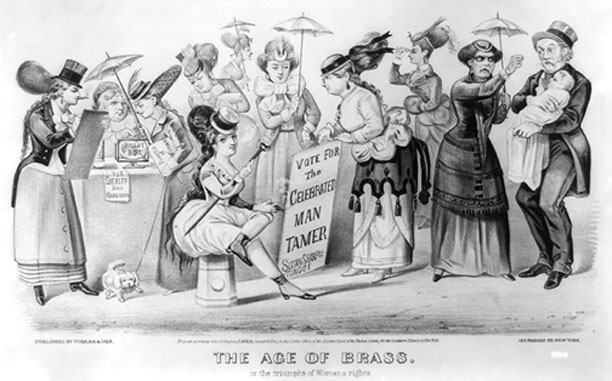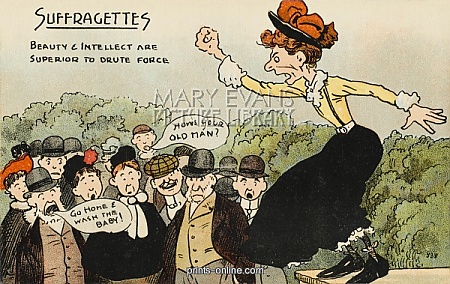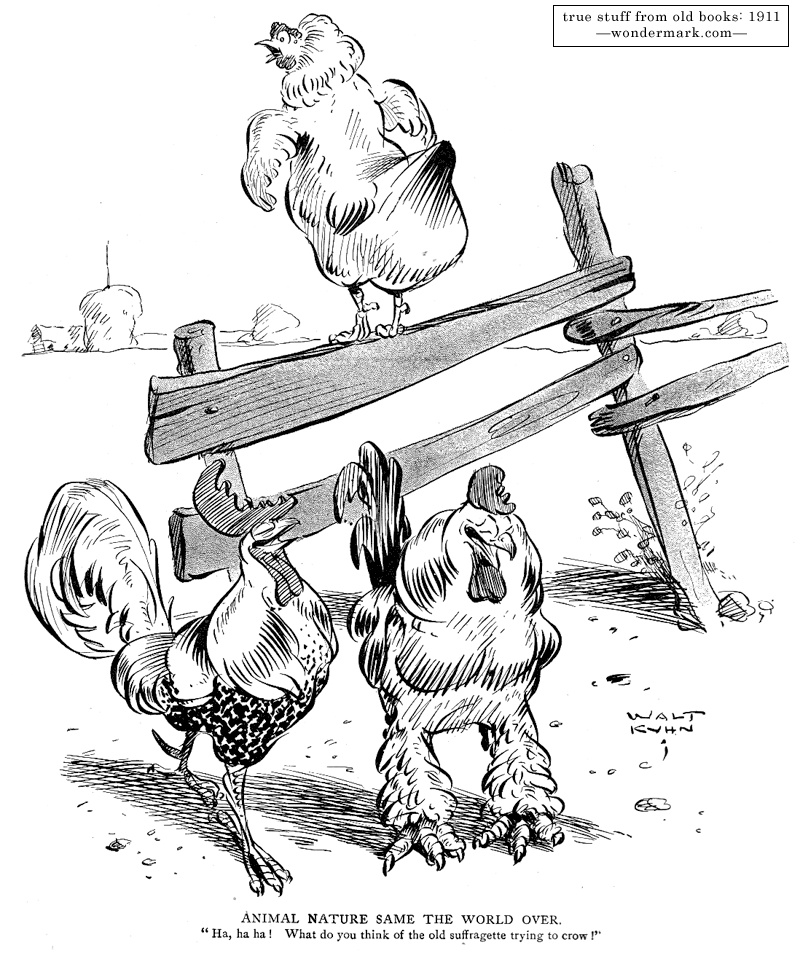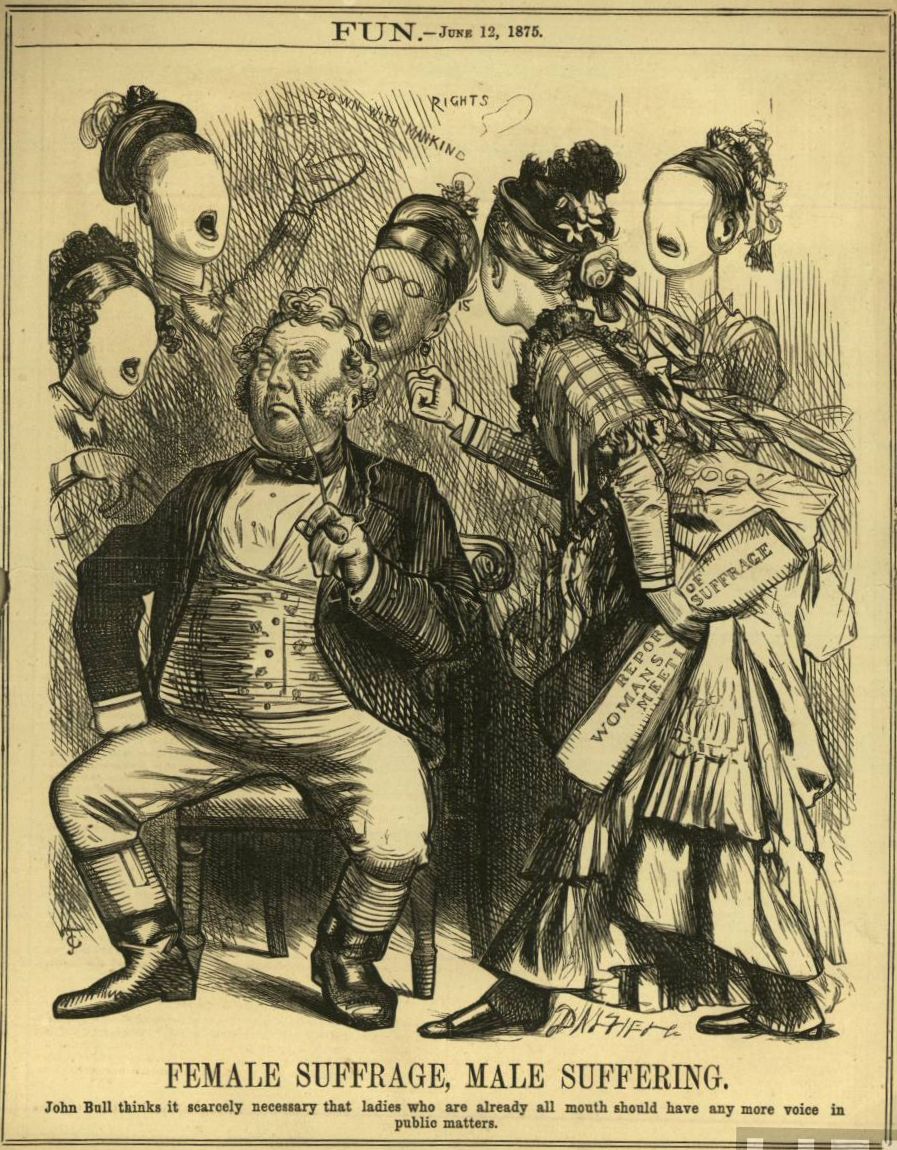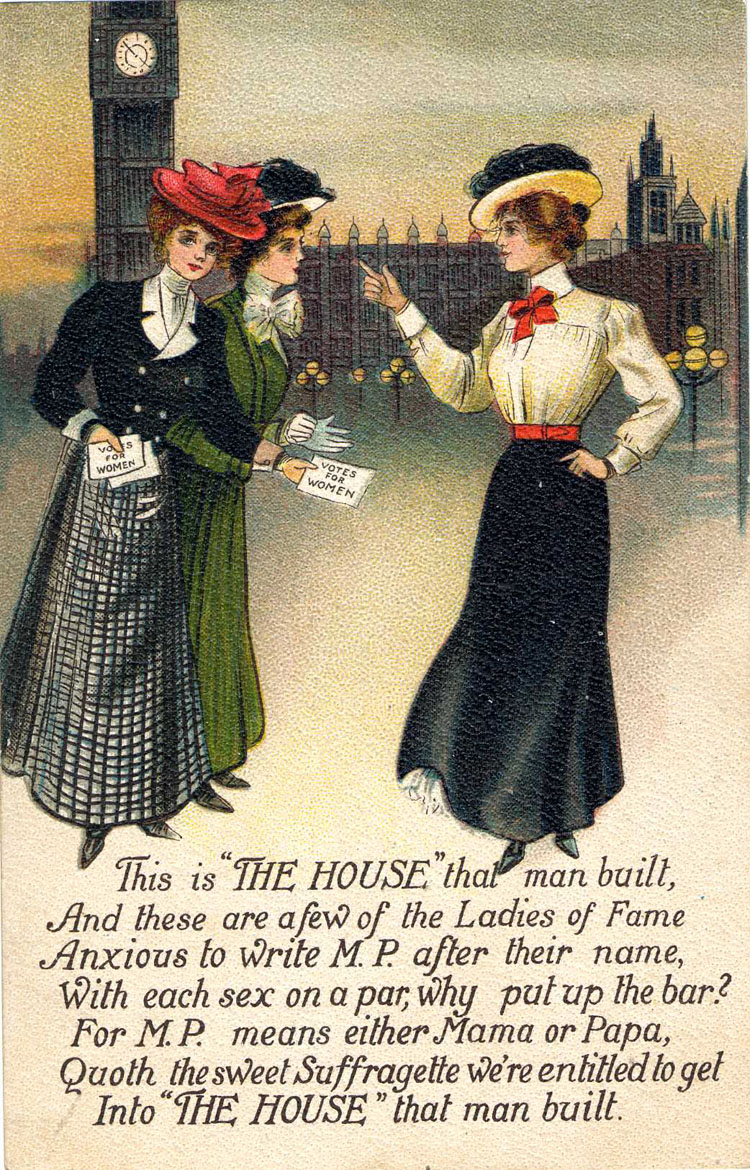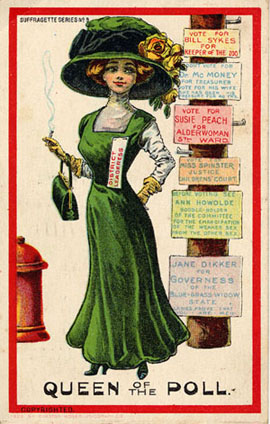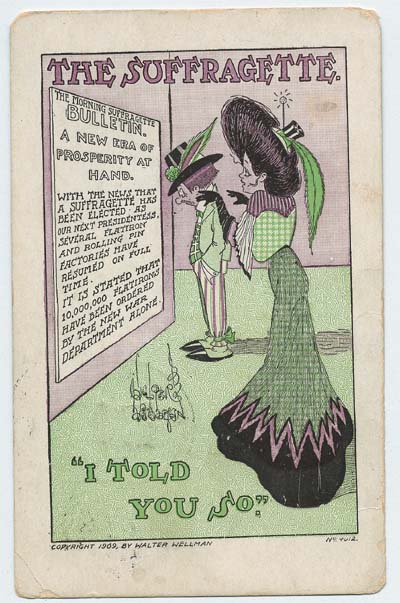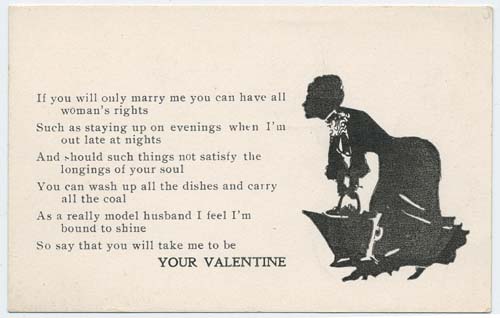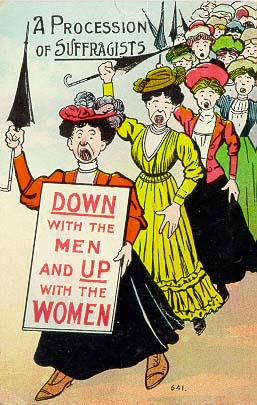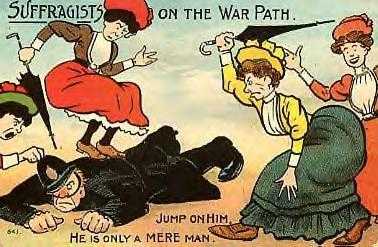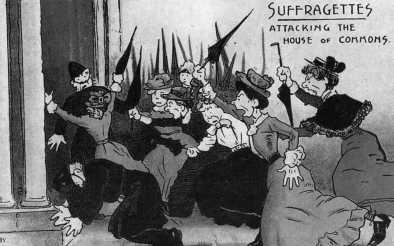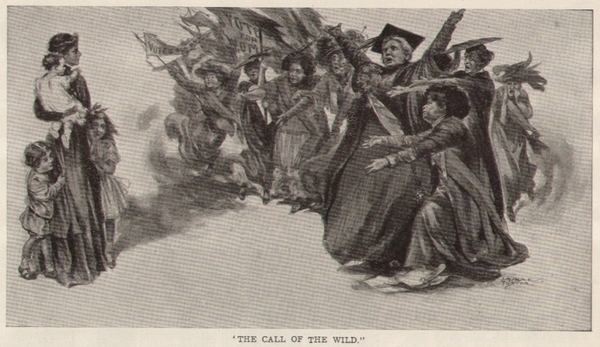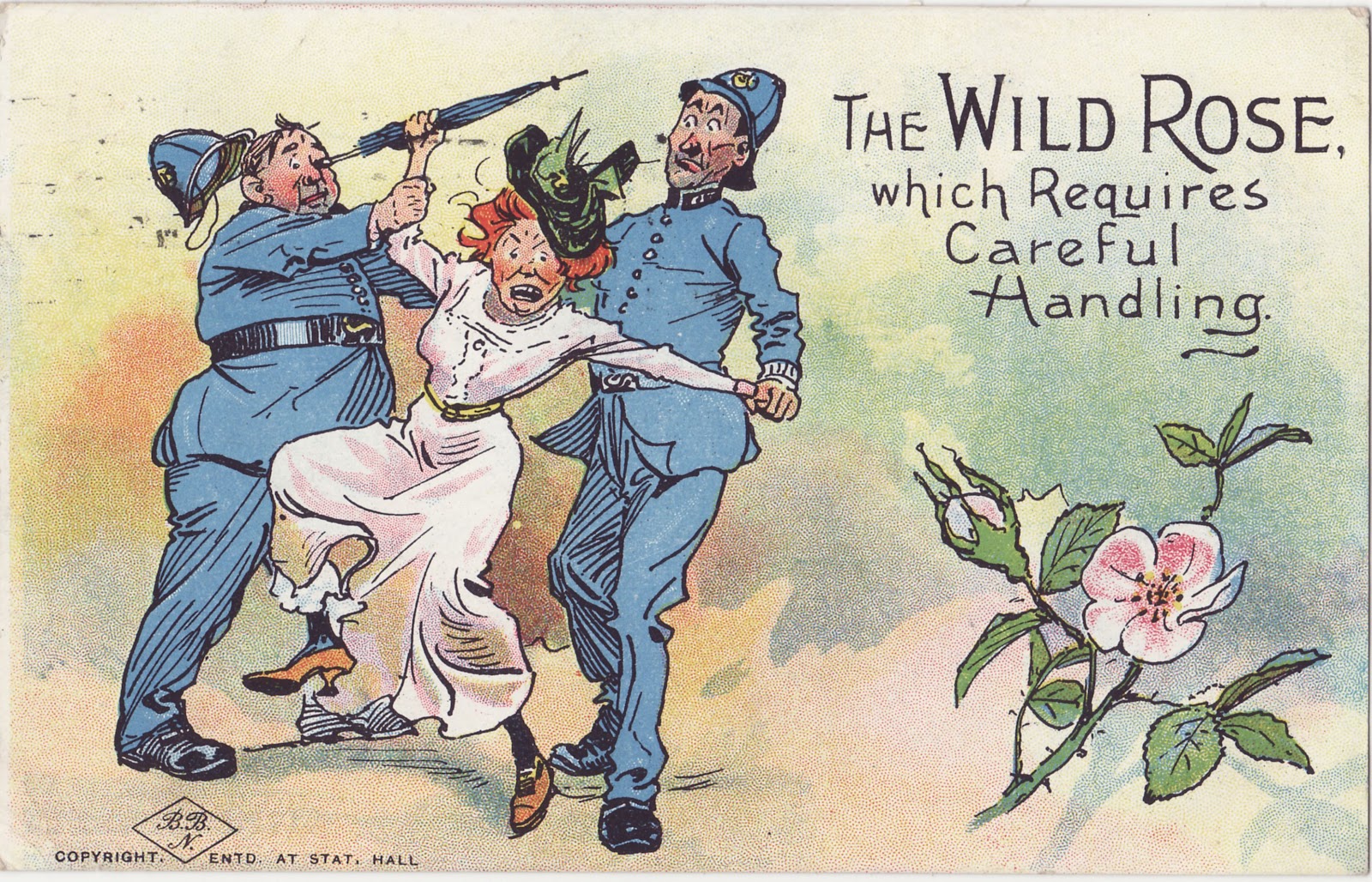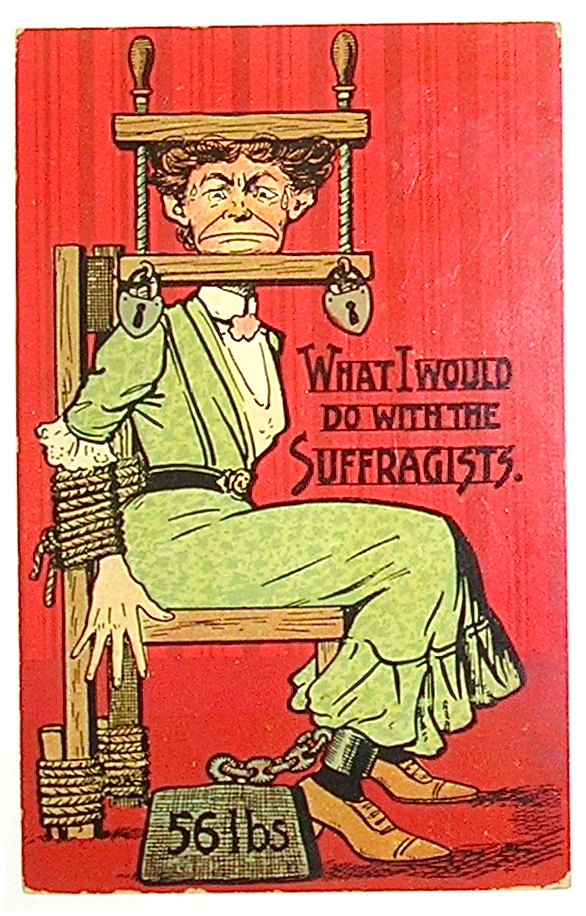Category Archives: Uncategorized
New York World Editorial 1915 – ‘Men! Are You A Politically Subject Sex?’
Attempted Murder by Suffragettes
It is universally acknowledged by historians that the suffragettes engaged in numerous terrorist acts, including attempted murder. One such case was the attempt on the life of Sir Henry Curtis Bennett, the chief magistrate for Bow Street who had tried Emmeline Pankhurst, as well as other leading feminists, for acts of terrorism such as setting fire to property and assaulting police officers. The story is recounted below by the Montreal Gazette published on June 04, 2013, and also describes the recent burning by suffragettes of Eaton Boats intended for the Royal Henley Regatta.
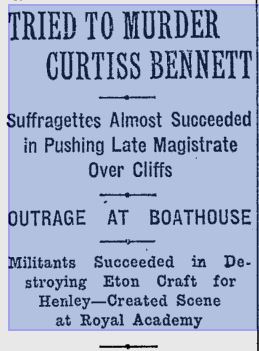
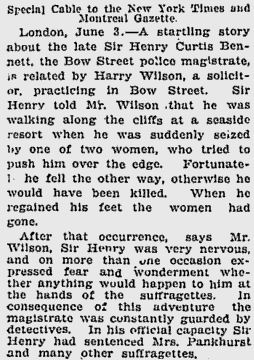
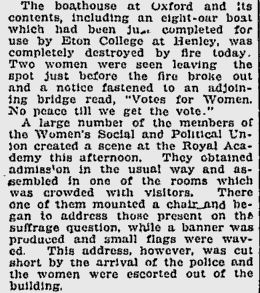
The following is a transcript from a London Evening Standard article on the same story :
The occasion of the tragic death of Sir Henry Curtis Bennett, the chief magistrate at Bow Street, has brought to light a sensational story of a daring attempt on his life by suffragettes.
Two women made a determined effort to push him over some steep cliffs at Margate. There were obvious reasons for not publishing the facts during the lifetime of the late chief magistrate, but the narrative was given in detail yesterday to a Standard representative by Mr Harry Wilson, one of the solicitors at Bow Street. The dastardly attack, which would seem incredible, but that it is recorded on the best authority, was made on Sir Henry when he was staying at Margate last summer, after the convictions following on the window-smashing raid in the West-end.
The adventure, which might easily have ended in tragedy, was told by Sir Henry to Mr Wilson. It was before the late chief magistrate had had any occasion to be attended by police officers wherever he went. As a matter of fact, this incident compelled him to seek that protection, and ever since detectives had always been in the vicinity to his house or had followed him when walking or driving anywhere.‘I was walking along, enjoying the breezes on the North Down Cliffs’, Sir Henry related the day after the outrage, ‘when suddenly a woman sprang up from a steep slope, and, seizing me by the leg, sent me staggering backwards. Just then another woman caught me by the shoulders and tried to push me over – a sheer drop of about 100ft. It was very good luck, however, to swing round and drop on the ground face downwards. I slipped down several yards, and when I managed to climb up to the top of the slope again the women had disappeared. It was a terrible experience, and I have had the attendance of Scotland Yard men ever since.’
The violent and criminal terrorist acts of the early feminists were recently glorified by the British Museum.
The White Feather Campaign in the Second World War
Although the infamous white feather campaign – the vile practice of women handing out white feathers to men in civilian clothing in an effort to shame them into enlisting – is associated with the First World War, during which it was a widespread phenomenon (and encouraged by leading feminists such as Christabel Pankhurst), there is evidence that some women tried to resurrect the practice in the early years of the Second World War. The following is an editorial from the Daily Mirror dated April 30th 1940 :
The antics of the feminist White Feather campaigners became so intense and feared during the course of the First World War that the government began to issue silver badges for brave soldiers who had been honourably discharged through wounds or sickness in order for them to demonstrate that they were veterans when wearing civilian clothing and hence spare them from the possible wrath of the feminist cowards.
When the Second World War broke out, there was sufficient concern that the White Feather campaign would repeat itself again that the government deemed it necessary to revive the Silver Badge idea, under the form of ‘the King’s Badge’.
http://en.wikipedia.org/wiki/Silver_War_Badge
The Silver War Badge was issued in the United Kingdom to service personnel who had been honourably discharged due to wounds or sickness during World War I. The badge, sometimes known as the Discharge Badge, Wound Badge or Services Rendered Badge, was first issued in September 1916, along with an official certificate of entitlement.
The sterling silver lapel badge was intended to be worn in civilian clothes. It had been the practice of some women to present white feathers to apparently able-bodied young men who were not wearing the King’s uniform. The badge was to be worn on the right breast while in civilian dress, it was forbidden to wear on a military uniform.
The badge bears the royal cipher of GRI (for Georgius Rex Imperator; George, King and Emperor) and around the rim “For King and Empire; Services Rendered”. Each badge was uniquely numbered on the reverse. The War Office made it known that they would not replace Silver War Badges if they went missing, however if one was handed into a police station then it would be returned to the War Office. If the original recipient could be traced at his or her discharge address then the badge would be returned.
A very similar award, known as the King’s Badge, was issued in World War II. Although each was accompanied by a certificate, issues of this latter award were not numbered.
It was common for men who had been given the White Feather by feminists in the First World War to either kill themselves through shame, or else to immediately sign up and face proabable death, even if they were suffering from genuine disability, had already fought and been traumatised, or even if they were underage children.
A man describes his grandfather’s experience of being a victim of the White Feather campaigners :
After reading, in quick succession, four books about the men who fought the war, I took out a box of flimsy, yellowing letters, and tried yet again to imagine what my grandfather went through.
He had three small daughters, which saved him from conscription, and his attempt to volunteer was turned down in 1914 because he was short-sighted. But in 1916, as he walked home to south London from his office, a woman gave him a white feather (an emblem of cowardice). He enlisted the next day. By that time, they cared nothing for short sight. They just wanted a body to stop a shell, which Rifleman James Cutmore duly did in February 1918, dying of his wounds on March 28.
My mother was nine, and never got over it. In her last years, in the 1980s, her once fine brain so crippled by dementia that she could not remember the names of her children, she could still remember his dreadful, useless death. She could still talk of his last leave, when he was so shellshocked he could hardly speak and my grandmother ironed his uniform every day in the vain hope of killing the lice. She treasured his letters from the front, as well as information about his brothers who also died.
She blamed the politicians. She blamed the generation that sent him to war. She was with Kipling: “If any question why we died, / Tell them, because our fathers lied.” She was with Sassoon: “If I were fierce, and bald, and short of breath / I’d live with scarlet majors at the Base, / And speed glum heroes up the line to death … And when the war is done and youth stone dead / I’d toddle safely home and die – in bed.”
But most of all, she blamed that unknown woman who gave him a white feather, and the thousands of brittle, self-righteous women all over the country who had done the same. And there were thousands of them, as Will Ellsworth-Jones makes clear in his fascinating account of a group of conscientious objectors, We Will Not Fight. After the war, Virginia Woolf suggested there were only 50 or 60 white feathers handed out, but this was nonsense – as Ellsworth-Jones’s diligent research shows.
Some of his stories still have the power to make the reader angry. A 15-year-old boy lied about his age to get into the army in 1914. He was in the retreat from Mons, the Battle of the Marne and the first Battle of Ypres, before he caught a fever and was sent home. Walking across Putney Bridge, four girls gave him white feathers. “I explained to them that I had been in the army and been discharged, and I was still only 16. Several people had collected around the girls and there was giggling, and I felt most uncomfortable and … very humiliated.” He walked straight into the nearest recruiting office and rejoined the army.
Since I published this article in 2012, I did some further research into the White Feather campaign in World War II, using historical newspaper archives. I was surprised to find that the practice of handing out white feathers was even more widespread in the Second World War than previously assumed, and tragically, it did lead to suicides, including at least two teenage boys :
White Feathers During World War II Caused the Suicides of Two Teenage Boys
Ernest Belfort Bax – ‘No Misogyny But True Equality’ (1887 – complete)
Ernest Belfort Bax responds to female reader who had accused him of misogyny over one of his recent anti-feminist articles (printed in To-Day magazine, October 1887) :
In a recent article I suggested that women were unable to treat any subject from other than a personal point of view. No better illustration of this statement could have been wished than the opening paragraph of Mrs. Besant’s reply to this same article. Now I should have said that if any living woman would have been capable of rising superior to this inability, it would have been Mrs. Besant. But no, even the brightest and best of the sex, it would seem, bear this fatal sign of sex-weakness upon them. Hence, when I endeavour to unmask what, rightly or wrongly, I deem a superstition on the subject of women, and to denounce the social injustice which results from it, I am accused, forsooth, of being a Romeo or a Robert, or some other “loving soul” out of sorts, writing under the sting of “personal suffering,” etc. Of course with the male readers of To-Day, such suggestions as these will only excite a smile. They remind one of the time-honoured bourgeois assumption that anyone who advocated more equitable economical conditions must be badly in want of a dinner; or of the inability of the Turkish mollah to explain the learned German’s purely scientific interest in Islamiti theology on any other hypothesis than anxiety to find out the way to the prophet’s favour. This incapacity to understand interest or emotion springing from anything but the most conventional personal reasons, with men generally eradicated by culture, seems for the present, at least, to be ineradicable in women, even the most gifted. Of course I can refer Mrs. Besant (in private) to at least two or three respectable householders who will vouch for the fact that the opinions expressed in the said article are old (of many years standing) with me, and that, therefore, the alleged “crisis” must be indeed a prolonged one. However, I am quite willing that Mrs. Besant should continue to be amused with the very commonplace kind of “self-revelation” she thinks she has discovered.
With regard to the “merry anecdote” business, printers have persecuted me without a cause (so far as I am aware), in turning “some 300 feet” into “some 800 feet.” I took steps to inform Mrs. Besant that this was the case, but conscious of the strength of my main position, I can well afford to grant my opponent all the points that can be made out of a misprint. For the rest, I might quote the eminent humorist who observed that if the young lady could jump 245 feet with impunity, there was no apparent reason why she should not have jumped 2,450 feet. With regard to the difference between the male and female birth-rates, I contend the figures given by Mrs. Besant fully justify the expression “enormously in excess” when we are dealing with large areas of population. An average of about one-twentieth more in one sex than in the other is a very important “excess” in such a case.
With a good many of my positions Mrs. Besant appears to agree. Of course I think she understates in favour of her own sex the inequality which she admits to exist between the male and female intellect. But it is not worth while to discuss this matter now. By her willingness to give up chivalry, Mrs. Besant shows herself at least consistent. In what she says also about the economic dependence, I, of course, agree. In fact her remarks on this head are only a commentary on the last paragraph of my article. She seems to forget that I myself stated that my remarks applied less to working women than to the women of the middle classes, though I fear many working men will tell Mrs. Besant that the greatest hindrance to their political and social activity is the apathy of their wives.
I certainly don’t deny that men are to be found who are no better than women in their capacity for interest in any impersonal question. I should say that both the sporting and religious “worlds” were largely made up of such. But let Mrs. Besant take the average educated man and the average educated woman, and her sense of fairness will hardly allow her to deny, I think, that my statement was in the main correct, at least in the sense in which I meant it. For I am not quite sure that she exactly hit my full meaning. By “impersonal question” I meant more than merely a. question not referring to self. Personal questions I understand to be questions concerning particular personalities, self presumably first, but when not self, other personalities, as opposed to questions concerning principles. What I say is that women in general are not interested in questions of principle as such, but at most only in so far as they affect particular personalities. They require the dramatic element to evoke their interest. With many men, on the contrary, though this element of course enhances interest, it is not the indispensable condition of interest. The difficulty for even a clever woman to conceive of what I might call an abstract interest is illustrated by Mrs. Besant herself (as already remarked), in her opening paragraph.
Mrs. Besant agrees as to the frailty of woman being mostly a sham, but tries to save the feminine reputation by crediting the female with especial fortitude in facing pain and suffering generally, as against the miserable man who makes a fuss when his finger aches. Now I don’t wish to be rude to a lady, but I am bound to state my conviction that Mrs. Besant at this stage of her article was at a loss for a retort, for the one she makes really won’t “wash”; it’s rather too thin. It must be notorious to Mrs. Besant, as it is to everyone else, that where the average man would go about his business, euphemistically answering conventional enquiries as to his health, with the passing reply that he feels “a little seedy to-day,” the average woman would be lying in her bed, or on a sofa like a limp rabbit, gasping out bulletins to the callers of the neighbourhood. No, surely, if there is one thing in which the average middle-class woman at least is deficient, it is in her “temper under suffering,” as the evangelical tract has it. She collapses utterly before the slightest pain, or even inconvenience, so far as not making a fuss is concerned. It has been confessed by ingenuous women that the pains of parturition of which so much is made, are in ordinary cases preferable to an attack of neuralgia. But whether this be so or not, it is an undeniable fact that many middle-class women if they feel a little tired from a walk pose as though their last hour had come. When Mrs. Besant charges this in the main to class-society I agree with her, but I am only chronicling existent facts, and it is no use denying them.
And now let us come to the main point in dispute. I have made no “impeachment of women in general.” What I have impeached is the ascendency of women as a privileged caste or class. What I maintained is that whatever may have been the disabilities of women in earlier stages of society, in our modern bourgeois society (Western Europe and its colonies), there is an increasing tendency to erect women into a “sacra-sacred” class, the members of which are to be exempted from all the disagreeable consequences of their own actions, to have the criminal law suspended in their favour, to win in every civil suit, to be treated as martyrs and heroines every time a slight inconvenience befalls them. This is what I term the modern 19th century form of the Yonic cultus.
Mrs. Besant will not take me seriously when I state that men have been given six months for protecting themselves against their wives’ violence. Yet this is literally true. The case I had in my mind occurred, if I remember rightly, about March last. The exact date I forget, but I noticed it in the Commonweal at the time. About a year-and-a-half ago there was a case at Highgate (as far as I recollect), in which a woman actually attacked her husband, who was an invalid and I think a cripple, with a knife, inflicting serious injury, and was let off scot free. If in the higher administration of the law there is gross and egregious favouritism shown to women as women, this is none the less so in the mere setting of the law in motion. A little more than a year ago a boy was sentenced, by Mr. Justice Day, to penal servitude for life, for attempting to extort money by threats of an indecent charge. Now women are allowed (vide Mr. Howard Vincent, Pall Mall Gazette, July 13th last) under the very eyes of the police to exercise as a regular trade, a practice which in the male, on a single offence, is deemed worthy of the penultimate penalty of the law[1]. Now I ask has ever greater privilege accrued to any class than this. The mediaeval “benefit of clergy,” pales down before the modern bourgeois “benefit of Sex.” Again, an alderman ventures upon a little feeble civic banter with some flower-girls who are brought up before him for obstructing the pathway. The Yonicists are up in arms. These “poor girls,” are insulted. The newspapers gush with indignation. Mdlle. Dronin is arrested on false information; by virtue of her sex the whole delinquent officialdom bows before her from Home Secretary downward, with apologies and costly gifts. A scream goes forth that women are bullied by the police in the streets. Parliament adjourns. The welkin rings with wrath against police tyranny. Over mere male Socialists, that does’nt matter – but over prostitutes – Oh! The Pall Mall Gazette rubs its eyes and snivels “Brethren shall we harry our sisters”? The same Pall Mall Gazette, bien entendu is very anxious to have its brothers “harried” for so much as looking at a woman in the streets; for the crime of accosting two years hard labour would, we suppose, be “grossly inadequate.” Talking about the Pall Mall Gazette, by the way, it is difficult to believe its editor was not intentionally “lying” at home “for the benefit of his country” – women, as he conceived, when he declared the other night that only a woman could be arrested on unsupported testimony. A man deserves to be condemned to travel every day for a twelvemonth with single women on the Metropolitan Railway that can make such an impudently false statement. As regards this matter, however, I, for one, am quite willing that no charge should be taken against a woman for annoyance in the street on the unsupported testimony of a man, provided no charge is taken against a man for indecent assault on the unsupported testimony of a woman. How now, what do you say to this, Mr. Stead? Completely destroy the blackmail industry – wouldn’t it? Now take this case – Barbarous cruelty to a young child, through whipping, is charged against the police – the child is a boy, a question is asked in Parliament, an investigation promised, and the matter shelved. Compare this with the case of a female arrested on an unproved charge by a policeman, and locked up for a couple of hours. She whimpers, and the respectable classes are set in a blaze.
I think that the Yonic superstition is in nothing more clearly evinced than in recent criminal legislation. The tender body of a young child may be flayed by a brutal policeman, just because it happens to be of the male sex; if it be of the female, to lay a finger on it is sacrilege, and for precisely the same offence it practically receives no punishment. The British Bourgeois affects horror at Count Schouvaloff’s birching of the court maids of honour at St. Petersburg, whose bodies were presumably better able to bear a castigation than the babes he complacently reads of in his paper as being sentenced to ten strokes of the birch by a police magistrate. Then take the clause in the recent Criminal Law Amendment Act, which provides that in the case of illicit intercourse between a boy and a girl, while the boy may be sent to the penal servitude of a reformatory for five years the girl remains absolutely untouched. Now it is universally admitted that girls develop earlier than boys, so that this is a simple premium for girls with precocious criminal tendencies to entrap youths. If it is prejudicial to the interests of society that intercourse should under any circumstances take place in the case of girls under sixteen, what conceivable rational ground can there be for limiting the penal consequences to one side of the equation. A more abominable infamy it would probably be difficult to find in the whole course of modern legislation.
Such are the outward and visible signs of the worship of the female principle in the modern world. Newspaper gush, one-sided legislation, “purity” meetings.
As it is holiday season, perhaps the editor of To-Day will allow me to be frivolous, and narrate a dream I had the other night. I had been reading the Pall Mall Gazette, and Mrs. Besant’s article after supper – and on going to sleep me thought I was in an ancient city. Temples, with griffins and other queer stone creatures abounded on all sides. Groups of quaintly robed idlers were standing about an open square (in which I suddenly found myself) talking eagerly together. Presently there issued from one side of the square a procession of white-robed figures that looked ghostly in the twilight as they advanced with measured step to the sound of the lyre and the lute. I asked of one who stood near what it was that I saw. “Knowest thou not, O son of the stranger,” replied he, “that the great goddess (the name I couldn’t quite catch) has vouchsafed to appear to men in mortal form, that she commands new rites, and will unfold to her worshippers the holy mysteries of the militant virgin.” This was interesting, and I eagerly watched the approaching votaries. While I had been waiting it had been growing rapidly dusk. But now the moon shone forth. By its light, I thought I detected, in spite of their strange garb, foremost among the advancing throng, not as I expected, Orientals of the third century B.C., but the homely figures of Mr. Stead and Mrs. Ormiston Chant, hand in hand, singing as they danced, and dancing as they sang, a joyous hymn of ecstacy. I looked again, and behind them detected, as I fancied, the features of Mrs. Josephine Butler and Mr Waugh, in similar raptures. My historical sense suffered a shock and I essayed to withdraw a little, but ere I had done so my neighbour laid his hand on me, “See,” said he, “the goddess herself approaches.” As I turned, the sharp cut features of a man, evidently a priest, caught my eye. He was clad like the rest in a plain white robe, but on his breast a large triangular silver breastplate glistened in the moonlight, and on his head was a conical crown. Could it be, but no – yet it was very like – the good Mr. Marson! In his hand he bore a standard whence gleamed in massy silver the model of a fish. Behind the high-priest followed a car drawn by eight milk white mares, and in a kind of palanquin a veiled figure I knew to be the goddess. “Bow, vile stranger,” said my neighbour, “adore that virginity which was, and is, and is to come, before which even the legislators veil their faces.” But I kneeled not, neither adored, but standing looked on. The procession halted before a temple, four priests came out and raised the palanquin. A thrill ran through the assembled multitude as the time arrived, when just for one moment the sacred veil should be raised. At the further end of the square a body of richly-attired old men emerged, with bowed heads, from a massive and imposing building. These, I understood, were the legislators, the fathers of the city. Now, thought I, for a chance to see one of the great types of ancient female beauty, if not the Trojan Helen, at least a Semiramid, a “Mrs.” Caudaules, or a Cleopatra! The veil was raised, there stood forward in the pale moonshine – “Miss” Cass ! I turned and felt a little sick. I suppose I must have swooned at the sight of the shopocratic vestal, for the next thing I recollect is being aroused by a crowd rushing forth from the temple, headed by him and her, whom I had taken for Mr. Stead and Mrs. Ormiston Chant, shrieking death and destruction to the male principle. “Hail to the eternal virgin-militant womanhood!” They all raised diamond-shaped daggers on high and conjured the moon-goddess that ere her virgin rays paled that night the city should be purged for ever of maleness, and dedicated a holy priestess to her service. I didn’t know exactly what it all meant, but thought I might as well go and look at something else, and so moved away, clutching a steel J pen and a fragment of the Pall Mall Gazette, which, in the event of the hero of Northumberland street beginning to show “venom,” I intended to use as a charm, crying In hoc signa vinces, (The allusion to the power of the new journalism; I thought would be sure to “fetch” him and make him forget his dreadful vows). However, at that instant I awoke – to reflections on the mutability of human affairs and the difference between the militant Yonicism of two thousand years ago – the group of smooth-faced white-robed fanatics, fish-sign on forehead, triangle on breast and diamond-shaped dagger in hand – and the militant Yonicism of to-day with its black frock coats, Exeter Halls, newspaper articles, London police-courts, lobby wire pulling, and vigilance societies, and I thought that on the whole in spite of certain elements of unpleasantness I preferred the former.
Let me assure Mrs. Besant I am no hater of “women in general.” What I hate is – women in the “particular” position of a privileged class as they are at present. I decline to bow down before a sexual principle, or to admit the justice of granting privileges on the basis of a sex-sentiment. What I contended and still contend is that the bulk of the advocates of woman’s rights are simply working, not for equality, but for female ascendency. It is all very well to say they repudiate chivalry. They are ready enough to invoke it politically when they want to get a law passed in their favour – while socially, to my certain knowledge, many of them claim it as a right every whit as much as ordinary women. Says Mrs. Besant, “Why use the existence of bad women as an impeachment of women in general?” Now I want to know who has done so. I certainly have not. All I say is, don’t allow the worst characteristics of bad women to come into play by giving them free leave to use the tribunals for purposes of spite, revenge or blackmail! Don’t pull out your biggest pocket handkerchief at every tale of wife-beating, before you have heard the other side! Don’t allow women to ruin men by legal process, as a punishment for not marrying them, when they want them to! Don’t allow wives to “sell up” their husbands, or to compel their husbands to maintain them in idleness, while they are allowed to keep all their own property or earnings singly to themselves.
In stating this view of the question plainly, I may say I am only giving articulation to opinions constantly expressed in private by men amongst themselves. A noisy band fills the papers with lying rhodomontades, & c., & c., on the “downtrodden woman,” and their representations are allowed to pass by default. I am styled a misogynist forsooth, because I detest the sex-class ascendency, striven for by a considerable section at least of the bourgeois Women’s Rights advocates, and desire instead a true and human equality between the sexes.
_________________________________________________________________________________________
1. This is not all. It is now proposed by the Saturday Review and Pall Mall Gazette that this promising branch of female industry should be “protected” by the curtailment of cross-examination. A Mrs. Brereton, the other day, brought what the jury by their verdict pronounced a false, or to put it mildly, “doubtful” charge against a man. It is now actually complained by the journals in question that this verdict was obtained or furthered by the too severe cross-examination of the prosecutrix. Hence it is argued that cross-examination must be in future limited to questions not embarrassing to the prosecution. Could sex privilege go much further!
http://www.marxists.org/archive/bax/1887/10/mysogyny-equality.htm
Ernest Belfort Bax – ‘The Woman Question and Marxian Historical Materialism’ (1918 – complete)
The following is a book review by Ernest Belfort Bax of ‘Women As Sex Vendors‘ which appeared in Justice magazine on December 19th 1918 :
Women as Sex Vendors, by R.B Tobias and Mary E. Marcy (Chicago, Kerr and Company), 50 cents.
In the little book before us the writers endeavour to explain the general position of women by a novel application of the economic theory of history. The privileged situation of woman socially and economically in our existing society, so often pointed out by the present writer, is freely admitted and often insisted upon by them, and their explanation of this phenomenon is that it is deducible from the fact that women are the monopolists of a saleable or barterable commodity necessary to the vast majority of men – viz., their sex. This it is which makes women on the average conservative. Even where not possessed of personal attraction they know they have an asset which on a push they can realise, and every fairly personable woman is in the position of the small shopkeeper who always cherishes the dear hope of some day carrying off one of the big prizes of retail trade, of seeing his small-shop develop into a Whiteley’s or a Harrod’s Stores.
The theory is certainly ingenious, and there is doubtless a good deal to be said for it, but, like most applications of the famous formula of Marx, it will hardly, we fear, as here set forth, cover all the facts – though it undoubtedly will some. The structure and attitude of male emotion towards the opposite sex, for example, certainly plays a part in the result which can hardly be described as wholly economic. Meanwhile, it is refreshing to find a female writer (or writers) honest enough to admit freely and openly the true facts of the case, facts which completely knock the bottom out of the conventional feminist jeremiads on Man the tyrant and Woman the victim.
The picture of American law (pages 47 to 52), throws a lurid light on the iniquitous privileging of women at the expense of men in the United States. While the man is bound hand and foot and may not even raise a finger in his own defence, the woman is practically free to commit any crime of which the victim is a man.
The little work, it should be said, is based as regards its historical and anthropological side on Friedrich Engels’s well-known book Der Ursprung der Familie, des Privat-Eigenthums und des Staats.
Ernest Belfort Bax on Criminal Sexual Law Under Socialism (1887)
Excerpt from ‘Criminal Law Under Socialism’ – Ernest Belfort Bax (1887)
The second class of offences named, those connected with sexual matters, from rape downwards, may be viewed from two or three different sides, and are complicated in ways which render the subject difficult of discussion in a work intended for promiscuous circulation between the sees. Here, as in the last case, viz., of theft or robbery, we must be careful in considering such offences, to eliminate the element of brutality or personal injury which may sometimes accompany them, from the offence itself. For the rest I confine myself to remarking that this class also, though not so obviously as the last, springs from an instinct legitimate in itself, but which has been suppressed or distorted. The opinions of most, even enlightened people, on such matters are, however, so largely coloured by the unconscious survival in their minds of sentiment derived from old theological and theosophical views of the universe, that they are not of much value. This is partly the reason why the ordinary good-natured bourgeois who can complacently pass by on the other side, after casting a careless look on the most fiendish and organised cruelty in satisfaction of the economic craving-gain, is galvanised into a frenzy of indignation at some sporadic case of real or supposed ill-usage perpetrated in satisfaction of some bizarre form of the animal craving lust. Until people can be got to discuss this subject in the white light of physiological and pathological investigation, rather than the dim religious gloom of theosophical emotion, but little progress will be effected towards a due appreciation of the character of the offences referred to. [1]
The two last orders of crime named differ from the preceding, in that they do not have even a basis in natural or social instinct as such. A brutal assault or malicious injury (i.e., one not inflicted in self-defence or under immediate and strong provocation) is purely and simply inhuman-criminal without having any direct palliation in the facts of economic conditions, like crimes against property, or in physiological and (possibly) economic conditions combined, like sexual crimes. Brutality and cruelty so far outweigh in enormity the two last as to seem almost to swallow them up. For instance, in cases of robbery or rape with violence, it is the personal violence accompanying the substantive crimes which naturally excites one’s resentment most; and properly so, although it is the latter of which the bourgeois law primarily takes cognisance. Any crime causing bodily injury or suffering must surely, in the absence of specially palliative circumstances, be regarded as the most deserving of condemnation at the hands of society.
The same may be said of false accusation of crime, an offence which is now classed together with others much less serious, under the absurd name of Perjury, the idea being that its gravamen consists not in the injury done to the innocent but in its insult to the majesty of the law. The unperverted sense could scarcely conceive of any crime more monstrous than this, and yet it is one which is frequently passed over lightly, with the view possibly of not discouraging prosecutions and thereby injuring the legal interest. By being classed under the head of perjury, moreover; it sounds less infamous than it really is, mere perjury being a thing recognised and practised in the best social circles, where the corespondent in a divorce case who has been committing adultery swears he hasn’t, as a mere matter of form.
(Notes) 1. It is a curious circumstance, as illustrating the change of men’s view of offences, that an ordinary indecent assault which in the Middle Ages, in Chaucer’s time for instance, would evidently have been regarded as a species of rude joke, should now be deemed one of the most serious of crimes.
Ernest Belfort Bax on ‘The False Idol of Equality Between the Sexes’ (1886)
Excerpt from ‘Some Bourgeois Idols’ (1886) – Ernest Belfort Bax
Let us take another idol. This time we tread on sacred ground indeed – equality between the sexes. Well may the iconoclastic hand tremble before levelling a blow at this new Serapis. Nevertheless here also – as the phrase is understood by the ordinary modern woman’s rights advocate – we are bound to recognise a vampire. In earlier stages of social development, woman was placed in a condition of undoubted social inferiority to man. Into the grounds of this inferiority it is unnecessary here to enter. Suffice it to say it existed, and that against the state of things it implied the cry of “equality between the sexes” was raised, at first in a veiled, and afterwards in an open manner. For some time it represented a real tendency towards equality by the removal of certain undoubted grievances. But for some time past the tendency of the bourgeois world, as expressed in its legislation and sentiment, has been towards a factitious exaltation of the woman at the expense of the man – in other words, the cry for “equality between the sexes” has in the course of its realisation become a sham, masking a de facto inequality. The inequality in question presses as usual, heaviest on working-man, whose wife, to all intents and purposes has him completely in her power. If dissolute or drunken, she can sell up his goods or break up his home at pleasure, and still compel him to keep her and live with her to her life’s end. There is no law to protect him. On the other hand, let him but raise a finger in a moment of exasperation against this precious representative of the sacred principle of “womanhood,” and straightway he is consigned to the treadmill for his six months amid the jubilation of the D.T. and its kindred, who pronounce him a brute and sing paeans over the power of the “law” to protect the innocent and helpless female. Thus does bourgeois society offer sacrifice to the idol “equality between the sexes.” For the law jealously guards, the earnings or property of the wife from possible spoliation. She on any colourable pretext can obtain magisterial separation and “protection.”
Again, we have the same principle illustrated in the truly bestial outcry raised every now and again by certain persons for the infliction of the punishment of flogging on men, for particular offences, notably “assaults on women and children.” As a matter of fact, in the worst cases of cruelty to children, women are the criminals. Some few months back there was a horrible instance in which a little girl was done to death by a stepmother in circumstances of the most loathsome barbarity: yet these horror-stricken advocates of the lash never venture to support flogging as a wholesome corrective to viragos of this description. It would be opposed to middle-class sentiment, which would regard such a proposition as blasphemy against the sacred principle of “femality.” No other explanation is possible, since it can hardly be assumed that even the bourgeois mind is incapable of grasping the obvious fact that a man pinioned and in the hands of half a dozen prison-warders, is in precisely as helpless a condition as any woman in a like cage, and that, therefore, the brutality or cowardice of the proceeding is no greater in the one case than in the other. The bourgeois conception of “equality between the sexes” is aptly embodied in that infamous clause of the “Criminal Law Amendment Act,” which provides that in case of illicit intercourse, between a boy and girl under sixteen years of age, though the girl escapes scot free, the boy is liable, to five years imprisonment in a reformatory.
Even the great Radical nostrum which is supposed to involve the quintessence of political equality, is, when closely viewed, the hollowest of shams. The revolutionary socialist perhaps does not much concern himself about questions of the suffrage, esteeming but lightly the privilege of electing men to help to carry on the present system of society, which he believes destined to perish before long. But looked at from the ordinary point of view, it is quite clear that considering the fact that the female population of England is in excess of the male by about a million, female suffrage, in spite of its apparent embodiment of the principle of equality, really means, if it means anything at all (which may be doubtful) the handing over of the complete control of the state to one sex. These are only a few of the illustrations which might be multiplied almost indefinitely, of the truth that the tendency of the modern middle-class world, is, while proclaiming the principle of “equality between the sexes” in opposition to the feudal subjection of woman, to erect, the female sex into a quasi-privileged class. The real equality between the sexes aimed at by socialism is as, I take it, much opposed to this Brummagem sentiment and sham equality, as it is to the female slavery of ancient times of which, of course, we do not wish to deny that survivals remain even at the present day. With the economic emancipation of woman and the gradual transformation of the state-system of to-day into an international league free communes, the feudal subjection of women to man and the middle-class subjection of man to woman will be alike at an end.
Anti-Suffragette Postcards Posters & Cartoons
A collection of cartoons and posters mocking the suffragette campaigns for votes for women :
Suffragette Plain Things
Suffragettes Who Have Never Been Kissed c.1910 UK
Origin and Development of a Suffragette
When Women Wear Pants, c.1915 USA
We Want the Vote 1910 UK
Woman’s Rights 1910 USA
Did I Save My Country For This?
Flapper 1925 USA anti-feminist postcard
We Don’t Know What We Want But We’ll Get It
Anti-Suffrage postcard, unknown date
Nobody Loves Me
Home for Lost, Stolen or Strayed Suffragettes
The Suffragette. “I told you so.” [Postcard]
Copyright 1909, by Walter Wellman
The poster reads:
“The Morning Suffragette Bulletin.
A New Era of Prosperity at Hand.
With the news that a suffragette has been elected as our next presidentess, several flatiron and rolling pin factories have resumed on full time.
It is stated that 10,000,000 faltirons have been ordered by the new War Department alone.”
Card reads:
“If you will only marry me you can have all woman’s rights
Such as staying up on evenings when I’m out late at nights
And should such things not satisfy the longings of your soul
You can wash up all the dishes and carry all the coal
As a really model husband I feel I’m bound to shine
So say that you take me to be Your Valentine”
A Procession of Suffragettes
Suffragists On The War Path
Suffragettes Attacking House of Commons
Call of the Wild
The Wild Rose
What I Would Do With The Suffragists

